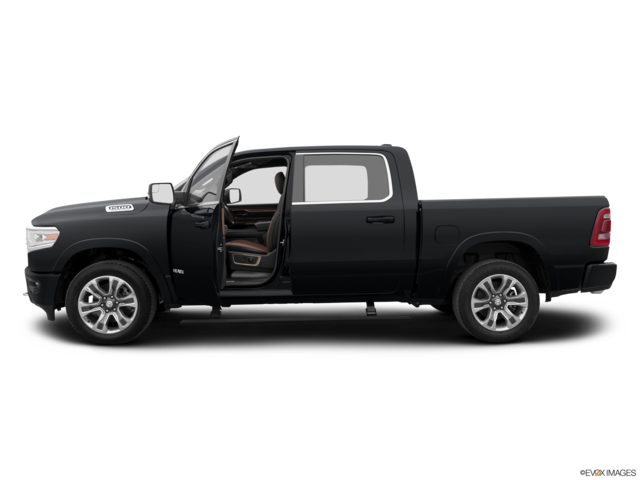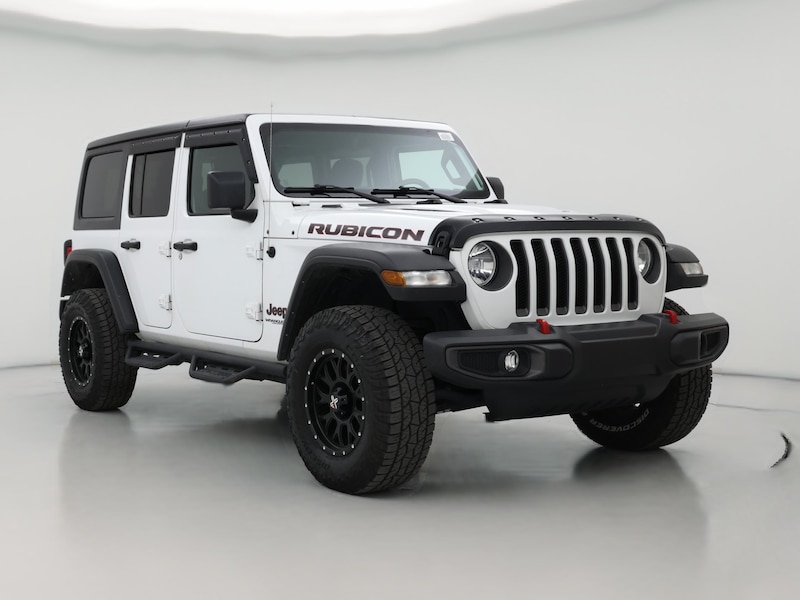
Diesel vehicles
Most new diesel vehicles are designed for commercial or heavy-duty use, so if towing or hauling are common for you, a diesel-powered vehicle could be a good fit.
Diesel fuel contains more energy per gallon than gasoline giving diesel-powered engines higher levels of torque.
Best diesel SUVs
If you're seeking a rugged and capable vehicle, a diesel SUV could be right for you.


1. Jeep Grand Cherokee
CarMax owner rating
Pros
Strong towing abilities
Extensive advanced driver aids
Superior off-road prowess
Cons
Confusing control layout
Interior materials feel cheaper than they look
Trailhawk trim only available for 4xe hybrid

2. Jeep Wrangler
CarMax owner rating

3. Jaguar F-Pace
CarMax owner rating
Pros
Impressive cargo space for its class
Sporty handling
Powerful drivetrains
Cons
Highway noise can be obtrusive
Complex controls
Decreased ride comfort on sportier S and SVR trims
Best diesel cars
If your used car wish list includes fuel-sipping credentials and high torque, a diesel powertrain may be just what you're looking for.


1. BMW 328
CarMax owner rating
Pros
Smooth and quiet ride
Upscale interior
Diesel power
Cons
Limited small-item storage
Tight elbow and shoulder room in the back seat
No Android Auto™ integration

2. Chevrolet Cruze
CarMax owner rating
Pros
Choice of two thrifty engine options
Fun and dynamic handling
Impressive standard infotainment system
Cons
Sluggish acceleration
Noticeable jolt in the cabin when engine start-stop system engages
Front seats could be more comfortable

3. Jaguar XE
CarMax owner rating
Pros
Sharp handling
Ride quality
Wide range of available engines
Cons
Clunky infotainment system
Cramped rear seat
Unrefined engine stop-start system
Diesel trucks
Averaging more overall torque than gas models, diesel trucks can handle the toughest jobs.


1. Ram 2500
CarMax owner rating
Pros
Impressive engine choices
Rebel trim adds new off-road option
Useful trailering technology
Cons
Cummins diesel engine is noisy
High driver position may be challenging for some drivers
Fuel economy of only 15-20 mpg in actual use

2. Ram 1500
CarMax owner rating
Pros
Plenty of useful cabin storage
The benchmark light-duty truck for ride quality
Cons
Driver-assist technology only offered on upper trims
Small rearview mirror

3. Ford F250
CarMax owner rating
Pros
Four-wheel drive is standard on most trims
Plenty of standard and available tow tech
Four available powertrain options
Spacious cabs that prioritize connectivity and comfort
Cons
Ride height can be a challenge on entry and exit
Downtown maneuvers will be challenging at this size
Research diesel cars and trucks
FAQs about diesel-powered vehicles
Gas engines can't process diesel fuel, so if you mistakenly put it in your gas-powered car, you'll want a tow to a service center to have it drained. Think of it like eating a toy car; your body is not going to be happy and you need to get it removed as soon as possible. To discourage this mistake, diesel nozzles are bigger than gasoline nozzles.
The three main diesel engines include Cummins sold by Ram, Duramax sold by GM (Chevrolet and GMC), and Power Stroke sold by Ford. Their differences, at least on a spec sheet, are slight. The Cummins is an inline-6, while the Duramax and Power Stroke are both V8s. Torque numbers between the three engines are within 200 lb-ft of each other, and often change year by year as manufacturers try to one-up each other on this important metric.
While diesel engines used to be more common in passenger cars, these days in the United States they’re mostly found in trucks, SUVs or cargo vans. Diesel engines are increasingly focused on commercial work and less popular than ever in consumer vehicles.
Sort of! All gas and diesel-powered vehicles will be phased out by 2030 because of legislation passed in the United States to combat climate change. Diesel vehicles are less popular than in years past thanks in part to fuel emission standards that have some manufacturers opting for greener alternatives.
How we ranked this list
To create our "Best Of" lists, our analysts look at CarMax vehicle and sales data over a recent 6-month period, from September 2023 through February 2024. Looking back over a 6-month period allows for the highest sample size possible while also providing up-to-date pricing information. Some articles may include data points with lower sample sizes.
***
RepairPal Reliability Ratings are based on the actual cost, frequency, and severity of unscheduled repairs and maintenance on make/model data for select 2006-2020 vehicles. The reliability of a specific vehicle may vary depending on its maintenance and driving history, model year, trim, and features. RepairPal Reliability Ratings are provided by RepairPal and CarMax is not responsible for their accuracy.
Fuel economy figures are based on EPA estimates for when vehicle sold as new. Fuel economy may vary for reasons like driving conditions and vehicle history. Unless specified, figures are for vehicles equipped with an automatic transmission. See fueleconomy.gov.
Range figures are based on EPA estimates for when vehicle sold as new and assume a full battery charge. Range will vary based on things like battery age, vehicle condition and history, driving and charging habits, accessory use, and driving conditions. Battery capacity may decrease with time and use. See fueleconomy.gov for more info.
Ready to find your diesel-powered vehicle?
We hope you found this information helpful. This content is intended to inform and is not meant to provide legal, financial or investment advice. We make every effort to provide accurate information, but please verify before transacting and consider talking to a qualified professional about your unique circumstances.
Statements of fuel economy or EV range are based on EPA and other third-party estimates for vehicles when new. Fuel economy and EV range will degrade with time and vary based on age, driving conditions, vehicle history, and other conditions. See fueleconomy.gov for more info.
Editorial content contained on this page comes from Edmunds.com, Inc., a subsidiary of CarMax Enterprise Service, LLC, and information related to featured vehicles comes from third-party sources, including manufacturer information. Product and company names may be trademarks or registered trademarks of third-party entities. Use of them does not imply any affiliation with or endorsement by these entities. By clicking on any video links, you will be taken to a third-party site maintained by YouTube, Inc.












